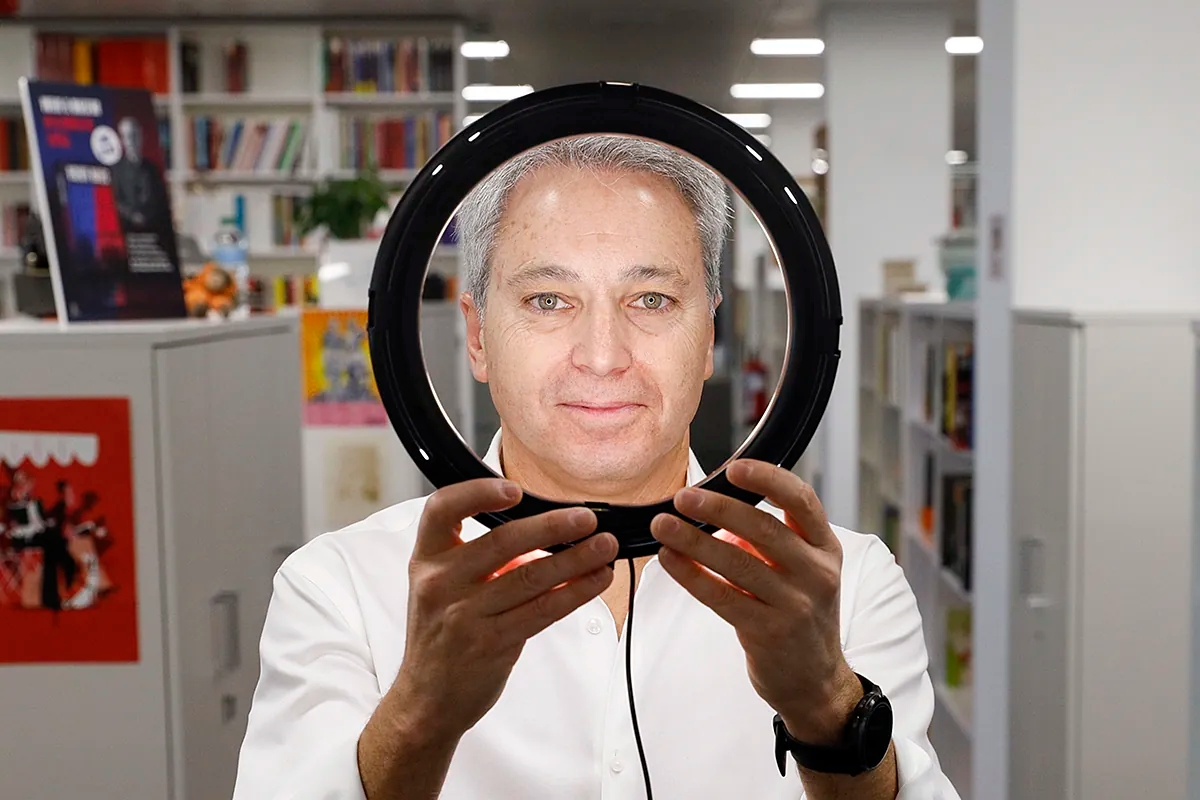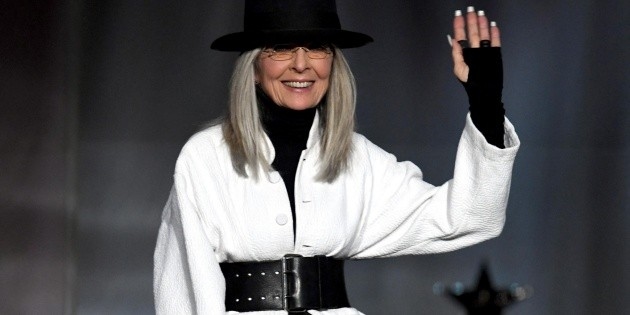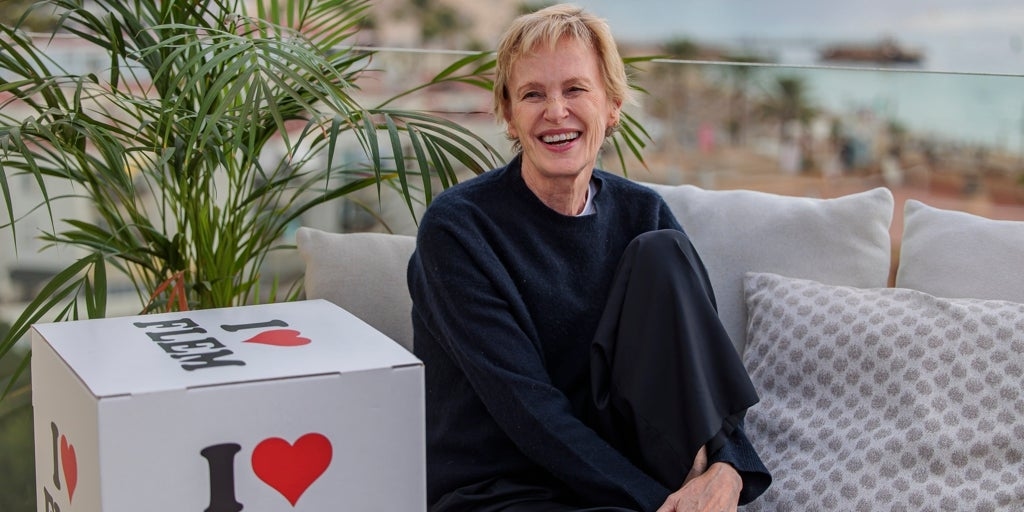Vicente Vallés: "Pedro Sánchez is at his best. He's perfectly capable of returning to power after the next elections."

Updated
Between leading news and leading news, Vicente Vallés (Madrid, 1963) has written his second novel, 'La caza del ejecutor' [The Hunt for the Executor] [Espasa], a spy thriller in which Moscow puts Europe in check. Yes, I promise you it's fiction and not a report on Vladimir Putin's hybrid war... even though it may seem like one. "It already happened to me with the previous one, 'Operation Kazan,' which was published just as Russia invaded Ukraine and its theme was in that direction. This one is even more embedded in reality: there are real events, fictional ones, and others that could be either. I play a game with the reader to guess which is which," he explains.
- For those of us who grew up when the bad guys in movies were always Soviet, it's striking how Putin fits into that cliché.
- Of course, because his case is exactly that. Vladimir Putin is a KGB spy who became president of Russia, so there's no cliché. It's a reality, and a reality that extends to the people around him. In Russia, there's a word, siloviki, that reflects those who have reached high political office through the intelligence, security, and law enforcement services, and almost all of Putin's circle are former KGB agents, colleagues from his time, and former members of the armed forces and police intelligence services. That sector of the Russian civil service is the one currently in power.
- It's not reassuring. Did we start looking at Gaza and trust Russia?
- I don't think we've become complacent, but the West has always had a problem with Russia, and specifically with Putin. It has preferred not to acknowledge reality, hoping that the fears we all had wouldn't come true, but they have. We're now talking with a certain degree of ease about a European country—Russia being one—invading another European country. That's something that happened 100 years ago, not now. And we've had to normalize the fact that this has happened, live with it, and try to prevent it from spreading, but now we're witnessing this hybrid war of sabotage, cyberattacks, I'll send you drones to scare you, and even a couple of fighter jets flying over an island in Norway. This is the world we're going to have to live in in the coming months, perhaps the coming years, and managing it won't be easy.
- It's more than just a new Cold War.
- There are some authors, well versed in the world, who say that we are actually experiencing a Third World War, which, fortunately, is not like the Second. The invasion of Ukraine is a typical model from that time, but it is concentrated in a very specific territory and has not spread. In modern times, wars are also waged with modern methods such as sabotage, cyberattacks, and the use of tools like drones and fighter jets to intimidate, not to exploit them. We have been experiencing this for quite some time now, but in recent months it has become much more intense, and it looks very bad.
- In what sense?
- There's no simple solution. We attended a meeting in Denmark these days to see what to do about the Russian enemy, and it's not the first meeting of Western countries, but the West is made up of many countries that need to be brought to an agreement, and they have different interests. The interests of Poland, which is on the brink of war, are not the same as ours, for example. Meanwhile, Russia is a single country with a single leadership and a single idea, which gives it a significant advantage when it comes to acting.
- You started in sports and have spent most of your career in news, but geopolitics remains your weakness.
- I've always loved it and I like to stay up-to-date. Plus, when you start writing a novel on that subject, you do a lot of research and take advantage of the opportunity to read even more about it and listen to many experts on the subject. So, without wanting to get carried away, I've learned something.
- In 2017, you wrote "Trump and the Fall of the Clinton Empire," an essay about his first presidency. Given what you learned about him while preparing that book, did you expect the unbridled Trump of today?
- I'm not surprised. In fact, in this second term, we're witnessing 100% Trumpism. In his first, Donald Trump couldn't do what he wanted to do because he came to power thinking he never would. He didn't believe he was going to win the election and suddenly found himself president of the United States without having formed a team on which to base his power in the American administration. He was surrounded by the Republican Party establishment , which had been practicing conventional politics and curbed many of Trump's impulses. That's not happening now. He has his people; those working with him are more Trumpian than Trump himself, and there are no filters or limits. It's pure Trump, unleashed. We're seeing tremendous things, and we're going to see more, because he's not even been in office for a year.
- Among other things, we've seen him openly encourage the cancellation of television shows with critical hosts, such as Colbert and Kimmel.
- Without a doubt, we are experiencing episodes that are not typical of Western democracies, surely because we are living under leaders who are not typical of Western democracies as we have known them. We are witnessing the rise of another model of leadership in the West, not just in the United States, and we citizens of Western countries are going to have to start thinking about where we are. Not all Western countries have a president who does these things, but we all have someone who aspires to come to power and do these things.
- When you look around, is Spain as bad as we Spaniards seem to insist on believing?
- No. When you go abroad, see what's happening, and analyze your country from a distance, you come to the conclusion that Spain is a country that's doing pretty well overall. With the problems we have, of course.
- What are they?
- We have an eternal problem, and it's one of the things we'll one day have to seriously agree to fix. That is why we always have twice the unemployment rate of our European partners. It doesn't matter if the economy is doing well or badly, it's always double. I've never understood why a state agreement hasn't been reached to end unemployment in Spain. I don't think the problem is that an agreement can't be reached, but rather that there's no will to try. There's a deliberate desire to avoid agreements; that is a serious problem in Spain, and it occurs because our political class believes that agreements are detrimental to one side and in favor of the other. Therefore, the natural temptation of all leaders and all parties is to avoid reaching agreements so as not to benefit the other. It's impossible that way.
- It is a refusal to understand the old adage that a fair agreement is one in which both parties are slightly dissatisfied.
- That's right. There are several issues on which, if you stop and think about it with an open mind, you don't find very serious differences between political parties. Is it really impossible to reach an agreement to see what we need to do as a country to cut unemployment by half and end this problem for good? I'm convinced it would be very easy if they wanted to get down to it. Just as it's incredible that we can't agree on two or three general foreign policy issues and continue to use foreign policy as a means of confrontation and domestic policy our whole lives. Not having a clear foreign policy is a sign of weakness toward our partners and doesn't help us at all, either when the left or the right is in power. Or housing, which is key right now. Do political parties really have so many differences that they can't reach some sort of consensus on a basic right? I'm sure it could be done, but it's not intended to be done.

Vicente Vallés poses for the interview at the Planeta headquarters. Sergio Enriquez-Nistal
- What happened in Gaza is a good example. Something that generated a great deal of unanimity in society turned into a political battle.
- Of course, and if you dig deeper, the confrontation hasn't been so much about having a different view of the facts, but rather about using one word or another. It's an absurd issue. The majority of Spaniards and political parties basically agreed that what Israel has done under the agreement shouldn't happen and that some remedy had to be found, but since we agreed on the fundamentals, they started looking for a way to disagree. They always agree that they have to disagree, and they found the word genocide for it.
- Has what Israel committed been genocide?
- Yes, the thing is, I think there was also an attempted genocide on October 7th when Hamas wiped out a huge number of people, as many as it could. If it could have killed more, it would have. It would have wiped out all of Israel if it had the capacity. It carried out the genocide it was capable of carrying out, and Israel's response was a genocide in return. We're facing two attempted genocides that ultimately wiped out the civilian population, and this can't be sustained. I hope this peace agreement holds. Now, it doesn't seem to me that it makes much of a difference between saying genocide and saying massacre and slaughter. I don't see any difference in meaning between those three words that would have made it a state debate.
- You were a pioneer in getting news anchors to take a stand. Now, almost everything is opinion and discussion. How much have we journalists contributed to this climate of social confrontation?
- Perhaps the verb "contribute" could be used, but I think that in the field of communication and journalism, we can't ignore what's happening. The point isn't that we encourage it to happen, but rather that we're a tool some use to confront each other. For example, if an important political leader tries to confront his rival, he does so through the media. What should the media do? Ignore it and not report it? In the end, all of this feeds the monster of polarization, that's certainly true, but I don't think journalists and the media are the first to blame.
- Has it been worth it for you, personally, to expose yourself more? Weren't you happier before, when everyone liked you?
- I do my job just like a newspaper editor or you do when you write a column or attend a talk show. Since we decided to pursue this vocation, we have to accept that journalistic work is open to the public, and when you expose yourself to the public, you have to accept that some of them won't like you. And, furthermore, that part varies because what some people like today, others will like tomorrow. I don't suffer because of it.
- It's a very centrist theory in a country where the center no longer exists, if it ever did.
- The center does exist, but it's diminished. In Spain, this has happened because positions have become increasingly extreme. Western liberal democracy was based on marginalizing extremes and all political and social activity was concentrated on central positions. A little to the left or a little to the right, but moderate. That has been blown out of the water, and now radical positions are very popular. This isn't good for sustaining democracy, which is based precisely on moderation, while autocracies are based on extremes. But this is the Spain and the world we live in. One in which Emiliano García-Page, Felipe González, and Alfonso Guerra are fascists.
- And you.
- Of course. If they are, we're all fascists now.
- The other day you said that Pedro Sánchez is at his best, and many people took it as a joke.
- I'm serious. He's in a great moment, but for him. What does that mean? Sánchez has managed in recent years to break some lines that were supposed to be uncrossable in Spain. For example, if it becomes normal, as it seems, that one can govern without a parliamentary majority to support the government, the parliamentary partners who made him president are no longer useful; they have no power. Pedro Sánchez said in the PSOE Federal Committee that he would govern with or without the support of Parliament. This is a rewrite of Western political science. Parliamentary democratic regimes are called that because they depend on sufficient majorities for a government to carry out its work, and if they aren't there, elections are called, which is the normal thing to do. Well, that normality no longer exists. So, if you think you can govern simply by being made president in an investiture and from there you can dispense with Parliament, which is exactly what's happening, then you're at your best because you can govern alone, which is what you wanted and what you're doing.
- Does Pedro Sánchez always survive?
- Well, what no one can say is that he isn't a very skilled politician and he handles situations as they arise. Pedro Sánchez knows that his limited number of parliamentary seats prevents him from doing certain things, but at the same time he knows that his rivals have an even greater limitation. He's not thinking about ten years from now; he's thinking about what he needs to do today to continue governing tomorrow. Well, to remain in power because he can't govern. He handles that very well.
- What has the PP done wrong to not take advantage of this obvious weakness of the Government?
- There, Sánchez has had a very significant advantage, which he has also fueled: the growth of Vox. There is no political sector more interested in Vox's growth than the left, and this is allowing the PSOE to constantly talk about the risk of the far right reaching positions of power. This greatly mobilizes the left and is a significant amount of votes that can sustain him in the next elections as well. That's why I insist that I see a good moment for Pedro Sánchez.
- Do you think Sánchez can be reelected in the next elections?
- Perfectly. The polls being conducted now, assuming they're well-conducted, reflect what's happening today and not what will happen 15 days, a week, a day, or an hour before voting. Election campaigns move a lot of votes in Spain, and Pedro Sánchez is also very skilled at mobilizing the left-wing vote, which might be disillusioned by everything that's happened this term. He's going to run the same campaign he did in 2023, when he reached the general elections after sweeping the PP, losing two months earlier in the municipal and regional elections, and, although he lost the elections, he ended up governing, which is what really interests him. This could be replicated in the next election if he repeats the campaign he already ran: "Listen, if you don't vote for me, the PP will govern with Vox. You'll see if you stay home and abstain or come and vote and prevent it." It already worked for him once.
elmundo


%3Aformat(jpg)%3Aquality(99)%3Awatermark(f.elconfidencial.com%2Ffile%2Fbae%2Feea%2Ffde%2Fbaeeeafde1b3229287b0c008f7602058.png%2C0%2C275%2C1)%2Ff.elconfidencial.com%2Foriginal%2F81b%2F90d%2F590%2F81b90d590517ddfe68c7a07078d8783c.jpg&w=1280&q=100)
